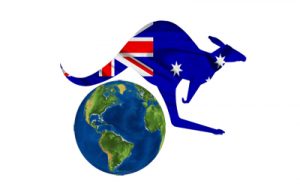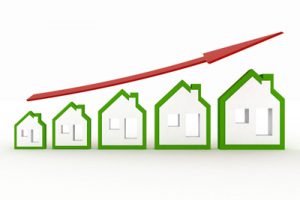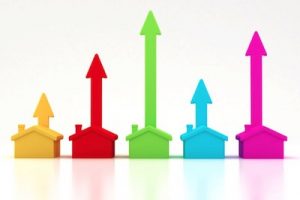QUOTE OF THE WEEK
“As winter becomes spring, and spring becomes summer, we will all come bursting out of our cocoons with a renewed sense of freedom. There will be an enormous release of pent-up demand for goods and services. For property it’s likely to be akin to a flock of seagulls fighting over a chip.”
Simon Pressley, the head of buying agency Propertyology
AUSTRALIA TO LEAD GLOBAL RECOVERY
 The Australian economy is in a strong position for recovery thanks to the stimulus packages recently implemented by the Federal Government. Experts predict that an upturn in property markets will mark the turning point.
The Australian economy is in a strong position for recovery thanks to the stimulus packages recently implemented by the Federal Government. Experts predict that an upturn in property markets will mark the turning point.
A report by PRD Nationwide looked at all G20 nations and their packages designed to bolster economies and jobs.
Per capita Australia ranked second, behind Germany, as being the best placed nation to ride out the economic downturn, while as a percentage of GDP it ranked third, surpassed only by Germany and Japan.
Simon Pressley, the head of buying agency Propertyology, says: “A strong property market will again lead Australia out of this latest coronavirus health crisis, potentially starting as soon as six months’ time.”
He says that because credit policies in Australia were so tight, the quality of loans approved in the past few years was “exceptionally high”. This will greatly minimise the need for distressed residential property sales, he says.
LISTINGS, PRICES ROSE IN MARCH
 National residential property listings rose 3.7% in the month of March, coinciding with a rise in home values for every capital city in the March Quarter.
National residential property listings rose 3.7% in the month of March, coinciding with a rise in home values for every capital city in the March Quarter.
Data from SQM Research shows during March, the biggest rise in listings came out of Darwin (16%), Canberra (1%) and Sydney (11%).
Brisbane and Adelaide both recorded a 4% rise; Perth was up 9%; while Hobart had the smallest increase of 2%.
Capital city prices increased by 0.7% for houses and increased 0.6% for units, over the month to 31st March 2020, says SQM.
Month-on-month, the CoreLogic RP Data Daily Home Value Index shows prices in every capital city except Hobart rose, with the 5-capital city aggregate (comprising Melbourne, Sydney, Brisbane, Adelaide and Perth) being up 0.74%.
House prices in all the capital cities except Darwin and Perth remain higher than a year ago – Sydney (up 14%), Melbourne (up 13%), Canberra (up 6%), Hobart (up 5%), Brisbane including the Gold Coast (up 4%) and Adelaide (up 1%).
REQUESTS TO DEFER REPAYMENTS EASING
 Commonwealth Bank of Australia chief executive Matt Comyn says the number of customers requesting home loan relief packages is starting to “level out”. There are similar reports from NAB.
Commonwealth Bank of Australia chief executive Matt Comyn says the number of customers requesting home loan relief packages is starting to “level out”. There are similar reports from NAB.
“While we continue to receive ongoing and significant demand, we are beginning to see initial signs of a levelling out of requests for help, after the huge spike in the past few weeks” said Comyn, who is also chairman of the Australian Banking Association.
“That suggests that the different measures put in place by the federal and state governments, and by the banking industry as a whole, are helping to ‘flatten the curve’ of demand for such assistance.”
The slowing demand for help comes as NAB and Bank of Queensland say they will allow clients to extend their interest-only periods.
ANZ Bank, Commonwealth Bank and Westpac are also allowing interest-only customers to defer their payments for up to six months, an option available to all home loan clients.
OWNING HOME STILL KEY FOR YOUNG AUSSIES
 New research confirms that the majority of Australians aged 18–34 aspire to own their own home.
New research confirms that the majority of Australians aged 18–34 aspire to own their own home.
The research found three-quarters of tertiary student respondents considered home ownership either “extremely important” or “very important”.
The students’ preference was a stand-alone house with three bedrooms, two bathrooms, a lounge room, and enough room for two cars.
The study also found that they would like to live within a 6-10km radius of the CBD, and be close to transport and public amenities.
Most students favoured the $400,000 to $600,000 price range for a home (41%), with price being the greatest barrier.
Economist Dr Diaswati Mardiasmo says: “The continued rise of property prices ahead of wage growth has made the traditional notion of home ownership seem unattainable to many students”.
However, many respondents were also torn between the desire to travel and experience life or to buy a house and take on all the responsibilities that come with it.
PRICES UNLIKELY TO FALL SIGNIFICANTLY
 Repayment holidays offered by lenders, a strong banking system and the temporary nature of the virus mean house prices are unlikely to suffer any significant falls, say industry experts.
Repayment holidays offered by lenders, a strong banking system and the temporary nature of the virus mean house prices are unlikely to suffer any significant falls, say industry experts.
CoreLogic head of research Tim Lawless says while home buying and selling would stall for some months, prices were likely to be more insulated. He says a 10% short-term fall is realistic.
Realestate.com.au chief economist Nerida Conisbee says property markets are diverse so forecasting a 30% decline “doesn’t mean anything”.
“It’s not a financial crisis and our banking system is still solid,” she says. “We would be in a different position if we didn’t have a strong financial system and things like mortgage repayment freezes.”
Property investor and university lecturer Peter Koulizos says, “We have six-month mortgage holidays and, unlike the 1990s, interest rates are at 2–3%, not at 15–16%.”
Lawless says 2020 might even be a good time to buy property.




